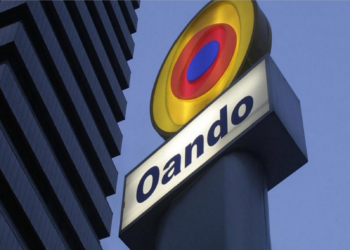The Bank of Industry (BOI) has marked a significant milestone in its operational capacity by successfully raising €1.879 billion in 2024, the largest sum ever secured by any Nigerian or African development financial institution (DFI).
This capital infusion is poised to enhance BOI’s balance sheet, expanding it by approximately N3.3 trillion, bringing the total to N7.1 trillion from N3.9 trillion recorded in 2023.
This substantial increase is expected to bolster BOI’s developmental initiatives and address Nigeria’s pressing annual financing gap of over $35 billion, as outlined in its corporate strategy for 2025-2027.
The international financial markets have been instrumental in facilitating this capital raise, underscoring their importance for private institutions aiming to achieve operational goals.
The syndication attracted a diverse range of international investors, particularly from the Middle East and Asia, reflecting a robust confidence in BOI’s governance and strategic direction.
Notably, the syndication was oversubscribed by 187.9 per cent, a testament to the innovative dual-layer guarantee structure employed, which leveraged support from the Africa Finance Corporation (AFC) and the Central Bank of Nigeria (CBN) to optimise risk-sharing.
This funding will primarily target critical developmental projects, particularly in infrastructure finance—a sector that necessitates long-term and high-value financing.
By addressing infrastructure challenges that inflate operational costs for manufacturers, BOI aims to enhance the competitiveness of Nigeria’s real sector. Furthermore, this capital will facilitate access to sector-specific funds aimed at gender equality, youth empowerment, micro, small and medium enterprises (MSMEs), agriculture, and sustainability initiatives.
From a risk management perspective, the newly raised funds will enable BOI to mitigate credit risks associated with longer payback periods while fostering partnerships that will expand financial access to underserved demographics. Analysts suggest that leveraging private capital for public infrastructure can alleviate governmental financial burdens while fostering innovation within the economy.
Performance indicators
In terms of performance indicators, 2024 stands out as a landmark year for BOI, marked by unprecedented achievements that solidify its reputation as one of Nigeria’s best-managed government institutions. The bank has maintained investment-grade ratings from Fitch and Moody’s since 2015, reflecting its sound management practices and global confidence in its developmental mandate.
Recognized for its sound management, BOI has consistently maintained investment-grade ratings by Fitch and Moody’s since 2015, underscoring its reputation as one of Nigeria’s best-managed government institutions. This achievement reflects the quality of BOI’s governance, its financial management and the global confidence in its development mandate.
According to the Managing Director/Chief Executive Officer of the BoI, Olasupo Olusi, the favourable terms associated with this funding will provide much-needed low-interest loans with extended tenures to Nigeria’s burgeoning private sector. This aligns with President Bola Ahmed Tinubu’s vision for economic growth and stability.
A significant portion of this capital is earmarked for MSMEs—crucial players in Nigeria’s economic landscape. The inclusion of BOI in President Tinubu’s New Year message as a key promoter of the National Credit Guarantee Company (NCGC) is expected to further secure resources mobilised from international markets by sharing risks associated with lending to MSMEs.
The €1.879 billion syndication not only drew remarkable interest from a diverse array of international institutions across various countries but also attracted over 10 new international investors, particularly from the Middle East and Asia.
The 187.9 per cent oversubscription of the syndication highlights the innovative financing achieved through a dual-layer guarantee structure, leveraging support from the Africa Finance Corporation (AFC) and the Central Bank of Nigeria (CBN) for optimal risk-sharing.
This structure allowed BOI to secure much lower interest rates than those typically applied to Nigerian debt instruments, resulting in savings of approximately 3.6 per cent per annum (or an estimated N295.7 billion over the three-year tenor). These favorable terms will reduce the cost of borrowing for the real sector making it more competitive.
What the funding means for MSMEs
This significant capital influx is earmarked for lending to Micro, Small and Medium Enterprises (MSMEs), a sector pivotal to Nigeria’s economic landscape.
Also, the inclusion of BOI by President Bola Tinubu in his New Year message as one of the major promoters of National Credit Guarantee Company (NCGC) will enable BOI to deploy more securely the huge resources that it continues to mobilize from the international financial markets by sharing risks with NCGC. Having BOI loans, particularly to MSMES, guaranteed under the new scheme would enable the bank to safely disburse more loans to Nigeria’s private sector.
According to President Tinubu, The Company—expected to start operations before the end of the second quarter—is a partnership involving various government institutions alongside private sector entities and multilateral organizations.
President Tinubu stated that this collaboration will enhance confidence in Nigeria’s financial system, expand credit access and support underserved demographics such as women and youth, ultimately driving growth and improving living standards across the nation.
This funding will better position the bank to achieve the Tinubu administration’s plan for 2025 to lower food inflation and the prices of essential medical supplies by increasing industrial production and productivity. These will help to tackle food insecurity and improve healthy living.
Commitment to gender equality
Olusi believes the formal adoption of the WeFi Code in Nigeria symbolizes BoI’s shared pursuit of gender equality, economic empowerment, and financial inclusion for our women-led enterprises.
He explained that as one of the champions of this initiative, the BoI remains steadfast in its commitment to empowering Women-owned Micro, Small, and Medium sized Enterprises (WMSMEs) by ensuring they have the resources, access, and opportunities needed to succeed. Women are the backbone of many industries across our nation, driving innovation and economic growth. However, the barriers they face in accessing finance have often constrained their full potential.
Through its dedicated Gender Desk, BOI provides tailored support to address these barriers, and as of December 2023, we have financed 833 women-owned or women-led businesses, disbursing N99 billion to help them thrive.
Looking ahead, BOI recognizes the need to focus on gender development and has prioritized gender as one of its six thematic areas of focus.
“To this end, BOI has developed a comprehensive gender strategy that will shape our efforts over the next few years. As part of this bold vision, we are committed to allocating at least 15 per cent of our risk assets to WMSMEs, a clear demonstration of our resolve to expand financial access and foster the growth of women entrepreneurs nationwide in line with His Excellency President Bola Ahmed Tinubu’s Renewed Hope Agenda,” he said.
Olusi explained that through the We-Fi Code, we are taking decisive steps to dismantle the barriers women face by leveraging data and uniting key stakeholders, we aim to ensure a more equitable distribution of financial resources.
“This initiative aligns with Nigeria’s National Financial Inclusion Strategy and reinforces our goal of closing the gender gap in access to finance. We are proud to be part of this transformative movement, and I thank our collaborators—the CBN, the Development Bank of Nigeria, and all stakeholders—for their dedication to this cause. Together, we are creating lasting change for the prosperity of our nation,” he said.
















